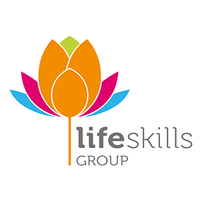There is some excitement around de-implementation in education at the moment. You might hear it referred to as pruning, reducing or my favourite term ‘doing less, better’.
De-implementation is the idea that we stop doing things that don’t work or are not worth the effort and energy it takes to do them. This is obviously a pretty simple and sensible idea and something you would like to think we would do naturally. So, why is this idea gaining popularity at the moment?
This is a pretty easy one to answer, most schools in western society are dealing with increased workloads, economic constraints, a teacher shortage and increased scrutiny, accountability, judgment and comparison. In other words, it is a terrible time to add something new and a great time to cancel things.
Let’s consider how we go about de-implementation. There is no shortage of processes you can draw upon but all of them will agree that the first step is analyse what you are already doing and what you want to achieve.
Do the things we do actually lead towards the outcomes we want to achieve?
For academic outcomes we can look at academic data in both student performance and student growth and decide whether we keep, chuck or change the programs we are running. We can do this periodically and systematically, always with an eye on continuous improvement. This is healthy evaluative practice, and it works because the program purpose and the outcomes we measure it against are aligned. This is core practice for educators and is often done well in schools.
When we look at wellbeing outcomes it gets more complicated. Typically, school plans have a focus on wellbeing, but the activities included don’t align with the outcomes identified. For example, a school may have a great wellbeing program running that focuses on resilience, an important and worthy cause. Unfortunately, when you look at the outcomes the wellbeing program is measured against, we see targets relating to an annual student survey, attendance data and negative behaviour incidents such as suspension. The fantastic resilience program is not going to have a measurable positive impact on any of these measures because the outcomes and the program aren’t aligned. Therefore, using data-based decision making we could conclude that we should stop doing it or de-implement it.
The obvious questions become; How do we know the resilience program is fantastic? Is it actually great or do we just think that? Is there a better way to measure wellbeing? The short answer is yes, there is. Here are 8 questions to ask when you are measuring your wellbeing programs and considering what to de-implement:
- Is my data relevant? i.e. would I expect the impact of the program to be visible in this data. Am I measuring the right thing?
- Is my data reliable? i.e. do I trust this data source?
- When and how frequently was this data collected? i.e. wellbeing data does not follow a linear trajectory or progression and can look different on any given day, how is this accounted for in the way your data was collected?
- How consistent is my data collection? i.e. When you compare this weeks data to last years data, is that a fair comparison? Were they collected the same way? Do you trust your baseline and comparison points?
- Has my program had time to show impact? i.e. how long would we expect it to take for this program to demonstrate impact in this data
- What does it cost us to run this program? i.e. cost in time, opportunities lost, financial, effort.
- If we stopped doing this, what would we lose? i.e. If we stopped this program, we would need to pick up another program to fill the need created. Is it worth changing?
- If we stopped doing this, what would we do with the savings (time, effort, resources) that is better than this?
[ Rydr Tracy is the Head of Education at Life Skills Group and former Director Strategic Priorities at CESE. He is a specialist in evidence-informed practice in educational innovation, with a career focus on strategic change that improves student outcomes. He draws on a rare blend of successful experience in schools, system leadership roles and industry practice – experience that has given him deep understanding of the complexities of the education sector from the classroom to the boardroom and a demonstrated capacity to generate practical recommendations that are grounded in context and evidence. ]
.png?width=500&height=374&name=Logo_transparent%20(2).png)





